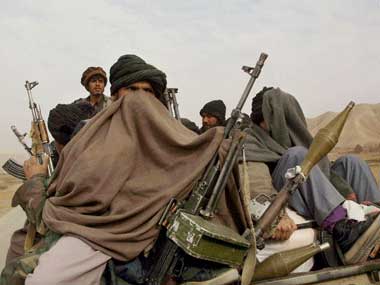By Anchal Vohra
Kunduz is key to the Taliban’s drug economy, an old base of Pakistan’s spies.
Connected in the west to Mazar-e-Sharif, to Kabul in the south and bordering Central Asian nation Tajikistan in the north, Kunduz is a transport hub used to smuggle drugs through Central Asia to Europe. Controlling Kunduz city therefore, meant hitting a jackpot.
Although the Taliban has had a strong presence in Chahar Dara in the province of Kunduz, the push came after Pakistan commenced Operation Zarb-e-Azb — the operation to eliminate terrorists in North Waziristan, Pakistan.
In an exclusive interview to me on CNN-IBN, the Afghan Defence Minister Mohammed Masoom Stanekzai said over the last two years, the presence of Taliban, and foreign fighters like Uighurs, Chechens, terrorists of the East Turkestan Islamic Movement and the Islamic Movement of Uzbekistan, and Punjabis from Pakistan has become more concentrated in the area. This happened after Pakistan carried out the operation in North Waziristan.
Can Pakistan be blamed for getting rid of the terrorists? Perhaps not.
But the Afghans allege Pakistan intentionally pushed the terror groups Afghanistan. Like the Indians, even the Afghans accuse Pakistan of being selective in wiping out the menace. Afghans say that while Pakistani forces attacked anti-Pakistan terrorists, those that oppose Kabul along with a variety of foreign terrorists trained in Pakistan, were pushed into Afghanistan. The Afghans call the timing suspect and question why Pakistan launched Zarb-e-Azb only after western troops had ended their combat role and Afghanistan’s security forces had just begun learning to stand on their own feet.
When I asked who was behind terror attacks in Afghanistan, and supporting the Taliban, Stanekzai — albeit cautiously — accuses Pakistan, “It was quite clear that when death of Mullah Omar became public and there was a total denial (by Pakistan), that the leadership of the Taliban was in Pakistan. But now this is absolutely clear. If they are based in Pakistan, who is helping them? Who is coaching them? From where do they (the Taliban) get all the support? I think we should not have any doubts. They (the Taliban) are there (in Pakistan), they (Pakistan’s Army and the ISI) are helping them and that kind of fighting (the capture of Kunduz) cannot be conducted without the support of any foreign elements”.
Amrullah Saleh, former chief of the Afghan intelligence agency — the National Directorate of Security — says Pakistan’s connection to Kunduz is an old one. He says the Taliban, backed by Pakistan, invested heavily in Kunduz for years. In 2001, then President Pervez Musharraf agreed to help the US on the condition that Pakistan’s generals and spies be air lifted from Kunduz before the country is bombed.
During my visit, I met several high ranking Afghan officials, members of the intelligence and diplomatic communities of different countries engaged in Afghanistan. I learnt that Pakistan had requested to the European Union to give the new Taliban chief Mullah Akhtar Mansoor four months to bring together the various factions Taliban.
At a meeting of Afghan-Pakistan interlocutors in Istanbul, Pakistan reiterated this.
Is Kunduz the big victory ISI-backed Mullah Mansoor needed to rally all the Taliban factions behind him?
Saleh thinks that is one of the reasons “Pakistan doesn’t hide (the fact that) they want Mullah Mansoor to consolidate. They told me and I countered them. I said, consolidating Taliban behind Mansoor would mean more Afghan blood”. Reflecting the deep suspicion on Pakistan in Afghanistan, senior Afghan generals have told the local press that Pakistan’s generals were fleeing from Kunduz in burqas, but none have so far been arrested.
Investigators are busy joining the dots, they mention how the Taliban fighters were spotted wearing sport shoes — which are common in Pakistan — and not sandals as Afghans prefer to wear. President Ashraf Ghani is under attack like never before. A leader who invested all his political capital in the hope that the ISI would have a change of heart, is finding it impossible to reason it domestically, as he faces protests both inside the parliament and outside. He now says his pro-Pakistan policy was just to tell the world that he tried.
Pakistan, meanwhile is on track.
Former Director-General of the ISI, Asad Durrani told me that Pakistan will bring the Taliban back to the negotiating table by exercising its leverage. “You can only exercise leverage if you have a rapport with the Taliban. They enjoy massive support on the ground,” he said.
However, the usually boisterous Durrani got hassled when I asked him to answer a simple question that Afghans want answered. If the talks are between the Taliban and the Afghan government, why do the Afghans allege that Pakistan eliminated anyone who tried to skirt Islamabad and approach Kabul on their own?


)




)
)
)
)
)
)